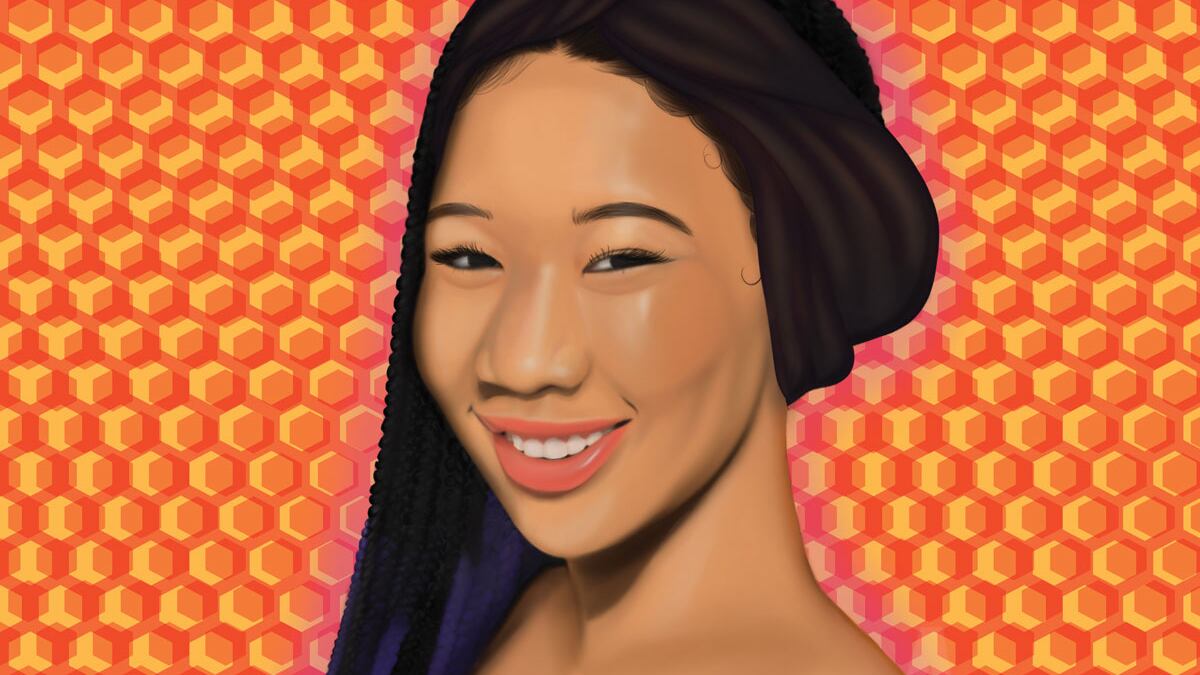Portland is a place that cares, and her residents are no strangers to showing up and getting out to stand up for what they believe in—which can result in national headlines. Our activism doesn't just come in a single shape, size or age. At 17, Amira Tripp Folsom is a prime example of that.
Going into her senior year at La Salle Catholic College, Folsom started her forays into activism work in eighth grade. Her advocacy encompasses many social issues, including racism, climate change and gun reform—both on and off campus. As an activist of color, Folsom has seen the bright and dark sides of fighting for social change, though it doesn't appear those adversities will be slowing her down anytime soon.
G!G: Could you give me a rundown of all the stuff you've done on campus so far?
As a sophomore, I started the Youth Ending Slavery Club. We focus on combatting the various forms of trafficking and slavery today. We've had guest speakers come in, and we've done events to raise awareness of forced labor and things like sweatshops, and how prevalent slavery is. No matter where you are in your life, you are affected by slavery in some way, whether it's good or bad, whether you're benefitting from it or being oppressed by it. We don't really learn about that in school, the different aspects of how people are still enslaved today. I definitely wanted to bring more awareness to that, and then in my junior year, I started the Black Student Union. I really wanted to have a space for black students to be who they are and really feel comfortable in their own skin, especially since my school is majority white. It can be hard being the only black student in the classroom and feel like you have to represent your whole race. We've been conditioned to not be the angry black person, to not speak your mind because it can make other people uncomfortable. I didn't like constantly feeling that way, and I knew that a lot of my other black friends felt that way too, so I wanted to make change that'll last even after we graduate. That way, people who come in as freshmen won't have to go through the same things we did.
I also do teen counseling with the Center for Women's Leadership at Portland State University, and I'm also a part of Vote16. I just joined the national campaign's youth advisory board. There are so many young people in this country and their voices really matter. Making voting a habit at such a young age is a good way to make it a priority in your life, but also educate younger people that voting is the best way to show your voice, your power, and really show up for your own future.
You do more than I've done probably in my whole life, but was there a particular instance of something that happened to you or someone in your life that made you want to get so involved in activism?
Yeah, it was when I was in middle school. I went to a really small conservative Christian school. This was around the time when a lot of black people were getting shot by police, like Tamir Rice and Eric Gardner, so it was just really upsetting to me to have this keep happening as this little kid, not knowing what I could do about it. Some of the stuff my teachers were saying was just really frustrating. One of my teachers said police brutality isn't a real thing and more white people get killed by police than black people. She actually said that. I had to just sit on my hands and keep my mouth shut, so I thought, "As soon as I get out of here, I'm doing what I can and I'm going to get involved in whatever way I can."
Has there been a time when you've had any kind of pushback at school from students or officials because of everything that you do?
Yes! With starting the Black Student Union. Some students were like, "That's stupid. Why can't we have a white student union?" I just couldn't even respond to that. And some teachers weren't aware [of how to go about it starting it], so we worked with the Center for Diversity and Inclusion for teacher training. For teachers to say, "I don't see color," or, "I treat everyone the same"—you don't. If you don't see my color and you don't see blackness and you don't see my Asianness, then you don't see me. That's a huge part of my identity, and you can't just act like we're all the same. We all have different struggles and you can't just brush that aside.
Does your family ever worry about you because of this type of work that you're doing, especially in Portland?
I mean, we've definitely dealt with stuff. There's this whole group of people who only like to look at activism from the lens of a white person. Of course, when you're advocating for people of color in a majority-white town, you're going to get flak from people who don't want to talk about that stuff. I just try not let it get to me too much, even though it can be discouraging to have it coming from all sides, when we should all be on the same team.
Then how do you encourage other people to join you?
You really show up for the things you care about. All of these choices that you make really reflect what your priorities are. I say it's OK to show up for your future and for the things you care abou, and yeah, it's going to be really hard and really discouraging, but anything that's worth fighting for is going to get hard at times. Surround yourself with good people, people who build you up and will help you learn and grow as a person and activist. The reason I do all these things is that I really care about them, so just put yourself out there and be OK with falling down. Pick yourself up, because the outcome is really worth it. When people ask me why I get involved with all of this stuff, my answer is "Why not?" If I can, I'm going to do whatever it takes because I really want to make a difference and be able to look back and say that I saw injustice and I did what I could to change that and to fix the wrong I'm seeing in the world and not just let it pass me by.

